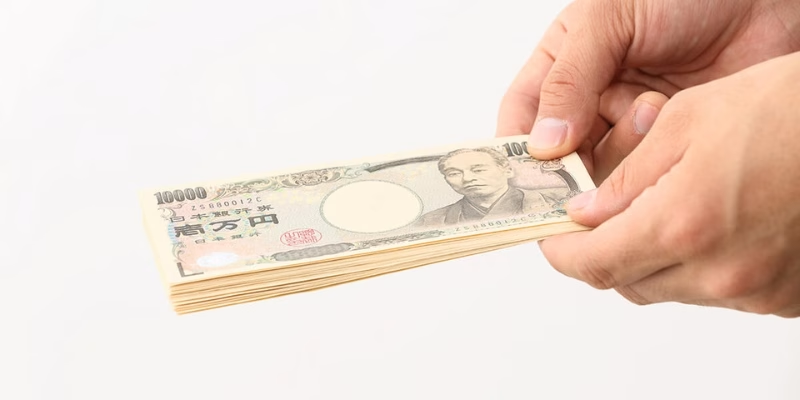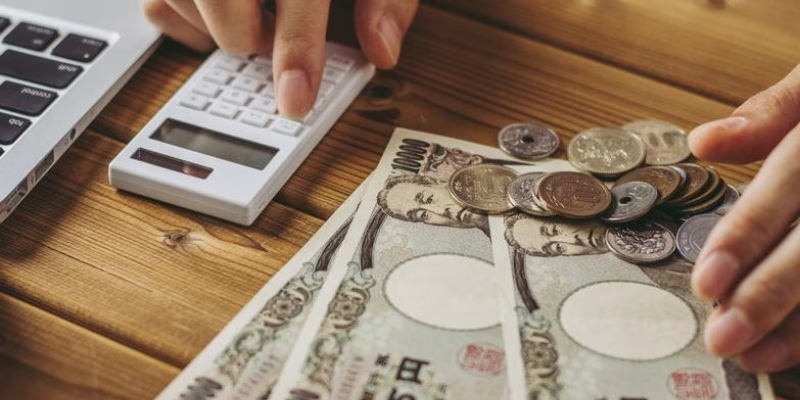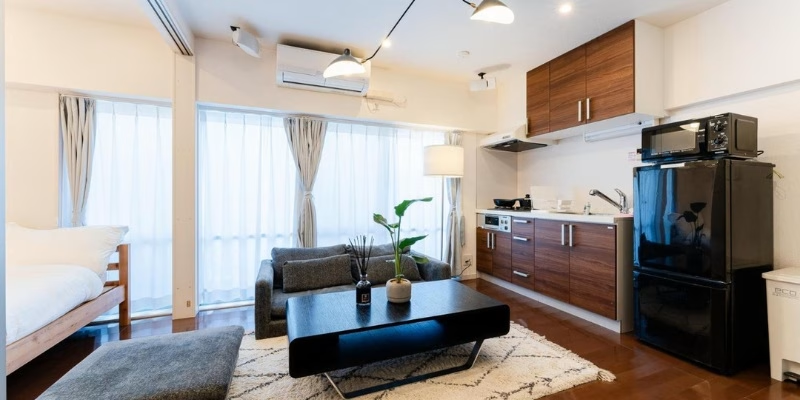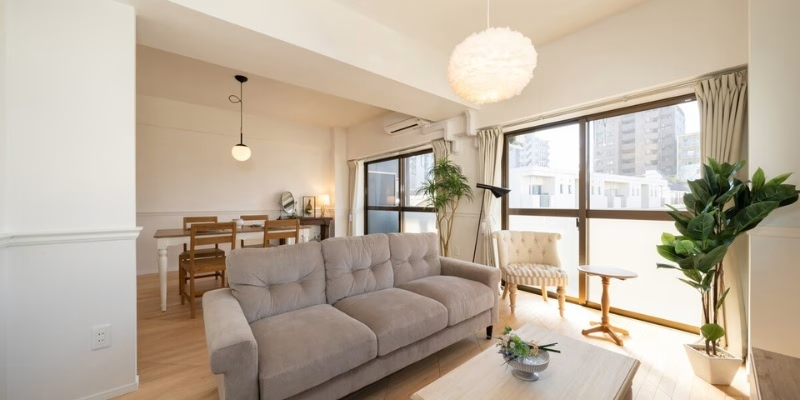Japan Rental Deposit and Key Money Explained is essential knowledge for anyone planning to rent a home in Japan. Unlike in many Western countries where tenants typically pay only the first month’s rent and a security deposit, Japan’s system often requires several upfront payments, sometimes equal to 4–6 months’ rent. Understanding key money (reikin), security deposits (shikikin), and other initial costs will help foreign residents avoid surprises, protect their rights, and make confident decisions when securing housing.
What is Key Money (Reikin) in Japan?
Understanding the Concept and Use of Key Money
Key money, known as reikin (礼金) in Japanese, literally means “gratitude money” and is a mandatory payment to the landlord. This payment represents a traditional gesture of appreciation to the landlord for allowing you to rent their property. Unlike security deposits in Western countries, key money serves no protective purpose for the landlord, it’s purely ceremonial.
Reikin typically equals one to three months of rent, though it can sometimes reach six months or more in highly sought-after properties. This payment is made at contract signing alongside other initial costs and is never refunded, regardless of how well you maintain the property or how long you stay.
The historical roots of key money trace back to post-World War II Japan when housing was extremely scarce. Tenants paid Reikin as genuine gratitude for securing accommodation during desperate times. While housing shortages no longer exist in most areas, the practice persists as cultural tradition.

Key Money vs Security Deposit: Key Differences
Understanding the distinction between reikin and other rental payments is crucial for proper financial planning:
Key Money (Reikin):
- Meaning and Role of Key Money
- Time-honored method of showing appreciation
- Typically 1-3 months’ rent
- No legal protection for tenant
Security Deposit (Shikikin):
- Refundable deposit for damages
- Legal protection for landlord
- Usually 1-2 months’ rent
- Returned after lease termination (minus deductions)
Regional Variations: In Kantō (Eastern Japan, including Tokyo), a renewal fee (kōshinryō) is typically charged at contract renewal, while in Osaka, key money practices differ. Tokyo generally maintains higher key money requirements due to competitive rental markets, while some rural areas may waive this fee entirely.
Understanding Security Deposit (Shikikin) in Japanese Rentals
What Shikikin Covers
Security deposit (shikikin) functions similarly to deposits in other countries, providing landlords with financial protection against potential issues. This refundable payment covers several specific scenarios:
Damage Repairs:
- Holes in the wall caused by picture hanging
- Scratched flooring beyond normal wear
- Broken fixtures or appliances
- Carpet stains or burns
Unpaid Rent Protection:
- Outstanding monthly rent
- Utility bill arrears
- Management fee defaults
Professional Cleaning:
- Comprehensive cleaning once tenants have departed
- Specialized cleaning for odors or stains
- Refurbishment to initial condition
Typical Amounts: Most landlords require 1-2 months’ rent as security deposit, though luxury properties or those in prime locations may demand higher amounts. The deposit amount often correlates with the property’s rent level and the landlord’s risk assessment.

Guide to Getting Your Rental Deposit Returned
Recovering your security deposit requires understanding Japan’s tenant-landlord laws and proper documentation throughout your tenancy.
Common Deductions:
- Professional cleaning fees (¥30,000-80,000)
- Fixes for deterioration beyond typical wear and tear
- Key replacement costs
- Outstanding utility payments
Normal Wear vs Damage: Japanese law distinguishes between natural deterioration and tenant-caused damage. Normal wear includes:
- Faded wallpaper from sunlight
- Rug deterioration in frequently traveled zones
- Minor scuff marks on walls
- Natural aging of fixtures
Tenant responsibility covers:
- Purposely caused harm or neglect
- Excessive dirt or stains
- Unauthorized modifications
- Smoking-related discoloration
Recovery Tips:
- Use images to record the property’s state when moving in
- Inform about upkeep concerns as soon as possible
- Keep all communication records
- Carefully review and grasp your lease in detail
Timeline for Return: Landlords typically return deposits within 1-2 months after lease termination, minus legitimate deductions. Request itemized deduction receipts and challenge unreasonable charges through local housing consultation services.
Complete Breakdown of Japan Rental Upfront Costs
Mandatory Fees You Must Pay
The high initial costs of Japanese rentals surprise many foreigners, with unique systems requiring large upfront amounts. Here’s a comprehensive breakdown of mandatory payments:
First Month’s Rent (¥100,000 example):
- Full monthly rent payment
- Due at contract signing
- Pro-rated if moving mid-month
Security Deposit – Shikikin (¥100,000-200,000):
- Typically 1-2 months’ rent
- Returnable amount minus approved deductions
- Higher for luxury properties
Key Money – Reikin (¥100,000-300,000):
- Usually 1-3 months’ rent
- Irrevocable thank-you payment
- Differs according to region and property style
Real Estate Agent Fee (¥100,000-110,000):
- Maximum one month’s rent plus tax
- Commission for apartment search services
- Sometimes negotiable with direct landlord deals
Fire Insurance (¥15,000-25,000 annually):
- Mandatory coverage requirement
- Safeguards renter’s possessions and legal responsibility
- Annual renewal necessary

Additional Costs to Consider
Guarantor Company Fees (¥50,000-100,000 annually):
- Required when lacking Japanese guarantor
- Ongoing annual renewal fees
- Coverage for rent and damage payments
Moving Services (¥50,000-150,000):
- Expenses for hiring a professional moving service
- Distance and volume dependent
- Seasonal pricing variations
Utility Connection Fees (¥10,000-30,000):
- Arrangement of electricity, gas, and water services
- Upfront deposit guidelines for international residents
- Internet installation costs
Initial Furnishing (¥100,000-500,000):
- Most rentals unfurnished
- Fridge, washing appliance, and air conditioner
- Bedding, cookware, and basic furniture
Total Initial Investment: For a ¥100,000 monthly rent apartment, expect ¥600,000-900,000 in upfront costs, representing 6-9 months of rent before moving in.
Area-Based Differences in Security Deposit Rules
Tokyo Rental Market
Tokyo’s competitive housing market maintains some of Japan’s highest initial costs due to demand from domestic and international residents.
Average Cost Breakdown (¥150,000 monthly rent):
- Security deposit: ¥150,000-300,000 (1-2 months)
- Key money: ¥150,000-450,000 (1-3 months)
- Agent fee: ¥165,000 (1 month + tax)
- Fire insurance: ¥20,000
- Total initial costs: ¥650,000-1,100,000
High-Demand Areas:
- Shibuya, Shinjuku: Higher key money requirements
- Roppongi, Ebisu: Premium location surcharges
- Central Tokyo: Limited negotiation flexibility
Foreigner-Friendly Areas:
- Setagaya, Suginami: More reasonable costs
- Katsushika, Adachi: Lower initial fees
- Share house options: Reduced upfront requirements

Osaka and Other Major Cities
Osaka’s rental market offers more flexibility than Tokyo, with regional customs favoring tenants in certain aspects.
Cost Advantages:
- Lower key money requirements (0-2 months)
- More negotiation opportunities
- Competitive agent fees
Local Customs:
- Gift money (omiaikin) instead of renewal fees
- Landlord-paid brokerage in some cases
- Seasonal rental promotions
Most Suitable Locations for Foreign Residents:
- Namba, Osaka Station vicinity: International community
- Sumiyoshi, Nippombashi: Reasonable costs with good access
- University areas: Student-friendly terms

Rural Areas and Smaller Cities
Moving outside major metropolitan areas significantly reduces rental costs but may limit housing options for foreign residents.
Cost Reductions:
- Key money often waivable
- Lower security deposit requirements (1 month standard)
- Reduced agent fees through competition
Challenges:
- Minimal English-language help available
- Fewer guarantor company options
- Transportation considerations for work commutes
Negotiation Opportunities:
- Longer lease commitments for fee reductions
- Direct landlord negotiations
- Seasonal timing advantages
How to Reduce Rental Costs in Japan
Negotiation Strategies
While Japanese rental customs seem inflexible, strategic negotiation can reduce upfront costs significantly.
When Key Money Can Be Waived:
- Properties on market for extended periods
- Direct landlord negotiations (no agent)
- Off-season apartment hunting (summer months)
- Long-term lease commitments (2+ years)
Seasonal Timing Advantages:
- June-August: Lowest demand period
- Avoid March-April peak season
- December-January: Some negotiation flexibility
Effective Negotiation Points:
- Immediate move-in availability
- Cash payment capability
- Stable employment demonstration
- Long-term residence plans
Alternative Housing Options
Consider non-traditional housing to avoid high initial costs while establishing yourself in Japan.
Share Houses:
- Initial costs: ¥50,000-150,000 total
- Complete furniture-equipped housing available
- Multinational living communities
- Flexible lease terms
Monthly Mansions:
- Complete furnished flats available for temporary lease
- Higher monthly rates but lower initial costs
- Suitable for temporary stays
- Utilities often included
UR Housing (Public Housing):
- No key money or agent fees
- Income requirements apply
- Restricted supply in desirable neighborhoods
- Longer application processes
Company Housing:
- Employer-provided lodging assistance
- Reduced or waived initial costs
- Limited location choices
- Dependent on employment status
Step-by-Step Guide to Japanese Apartment Application
Required Documents
Successful apartment applications require comprehensive documentation demonstrating financial stability and legal residency status.
Essential Papers for Renting a Property in Japan
- Passport and valid visa
- Zairyu card (residence card)
- Proof of employment or income
- Recent bank statements (last 3–6 months) → Latest bank account statements covering the past 3–6 months
- Registered personal seal (hanko) → Officially registered personal stamp (hanko)
- Guarantor details or guarantor company application
Income Requirements
- Monthly earnings should generally be at least three times the rent
- Stable work history is highly recommended
- Self-employed applicants may need extra financial proof

Rental Process Overview
Knowing the steps of the rental procedure can help you plan better and prevent gaps in housing.
Week 1: Property Hunting
- Explore listings online and consult real estate agents
- Visit apartments and get familiar with the neighborhood
- Set a clear rental budget
Weeks 2–3: Application Submission
- Assemble and hand in all essential documents
- Landlord reviews applications and screens tenants
- Obtain guarantor approval if required
Week 4: Lease Signing and Move-In
- Review the lease carefully and sign the contract
- Make initial payments (deposit, key money, first month’s rent)
- Schedule and prepare for the move-in

Common Mistakes to Avoid When Renting in Japan
Financial Preparation Errors
Underestimating Total Costs: Many foreign residents budget only for advertised rent without considering comprehensive initial fees. Create detailed cost projections including all mandatory payments, moving expenses, and initial furnishing needs.
Cash Flow Challenges: Japanese rentals require immediate cash payments at contract signing. International bank transfers may take several days, so arrange funding well in advance. Some landlords accept bank transfers, but cash remains preferred.
Currency Exchange Considerations: Fluctuating exchange rates affect your total costs when converting foreign currency. Monitor rates and consider timing your currency exchange strategically.
Cultural Misunderstandings
Negotiation Expectations: While some negotiation is possible, aggressive bargaining violates Japanese business etiquette. Approach discussions respectfully and through proper channels (your agent or guarantor company).
Maintenance Responsibilities: Japanese leases often require tenants to handle minor maintenance issues. Budget for small repairs and understand which maintenance tasks fall under tenant responsibility.
Neighbor Considerations: Japanese apartment living emphasizes quiet enjoyment and community harmony. Understand noise restrictions, garbage disposal rules, and common area etiquette to maintain positive relationships.
Legal Rights and Protections for Renters in Japan
Tenant Rights
Japan’s rental regulations provide tenants with clear protections regarding deposits, lease agreements, and landlord responsibilities.
Deposit Return Protections:
- Tenants have the legal right to get their deposit back after legitimate deductions.
- Safeguards exist against unfair or excessive deductions by landlords.
- Tenants can request detailed receipts for any amounts deducted.
Lease Termination Guidelines:
- The standard notice period for ending a lease is typically 30 days.
- Arbitrary eviction is prohibited under Japanese law.
- Tenants are entitled to renew leases under similar conditions.
Protections Against Discrimination
- Under Japanese law, discrimination based on nationality is prohibited.
- All tenants are entitled to equal opportunities when renting housing.
- If issues arise, residents can file complaints with local government housing offices.
Handling Rental Challenges
Dispute Resolution Options:
- Local municipal housing consultation services.
- Legal aid organizations serving foreign residents.
- Professional mediation services for conflicts.
Why Consistent Documentation Makes a Difference
- Preserve complete records of every conversation with your landlord.
- Regularly photograph the property to document its condition.
- Save copies of receipts for all payments made.
Support Resources:
- International associations at the city level.
- Organizations that defend and assist renters
- English-language legal advisory services.
Common Questions
Key Money and Deposits:
- Can key money be negotiated?
Yes. This is possible for long-listed properties, during off-peak rental seasons, or when signing a longer lease. Negotiations should be conducted respectfully and through proper channels.
- Is key money tax-deductible?
Generally, it is not for individuals as it counts as a personal expense. Businesses relocating may qualify for certain deductions—consult a tax expert.
- What happens if I end my lease before the agreed term?
Key money is usually forfeited entirely. Security deposits may face additional deductions depending on the contract.
For Foreign Residents:
Do rental agreements require a Japanese guarantor?
Many landlords now accept guarantor companies, which simplify the rental process for foreigners. These companies charge annual fees but provide the assurance landlords require.
Can deposits be paid by credit card?
Most landlords request cash or bank transfers; credit card payments are uncommon.
What should I do if I’m not fluent in Japanese?
Many real estate agencies offer English support, and guarantor companies often provide multilingual assistance. Translation services can also help clarify contracts.

Move to Japan with Ease – Choose Arealty
For many expats, finding a home in Japan can feel complicated. Lengthy contracts, guarantor requirements, and language barriers often create unnecessary stress. This is why having trustworthy support can change everything.
Why Arealty?
- Multilingual support – A dedicated team fluent in English, Japanese, and Vietnamese.
- Local expertise – Deep knowledge of Japan’s housing market and the unique needs of international residents.
- Full-service assistance – From property search and contract signing to move-in support, Arealty is with you every step of the way.
- Transparent process – Clear communication and a client-first approach for a hassle-free experience.
With Arealty, settling down in Japan becomes simple and stress-free. Focus on your work or studies while we handle the housing process.
Hotline: 050-6864-9697
Website: https://arealty.jp
Conclusion
Japan Rental Deposit and Key Money Explained underscores the importance of preparation when renting in Japan. Initial costs can reach 6–9 months’ rent, but with careful planning, finding a home is achievable.
Key Tips:
- Reikin (key money) is a non-refundable cultural payment, separate from the Shikikin (security deposit).
- Budget for all upfront costs, including agent fees, insurance, and moving expenses.
- Explore alternatives like share houses or UR public housing if traditional rentals feel too expensive.
- Keep detailed documentation to safeguard your deposit.
- Use support services for foreign residents whenever needed.
By understanding these essentials and planning ahead, tenants can confidently navigate Japan’s housing system and secure a comfortable place to live.






Leave a Reply